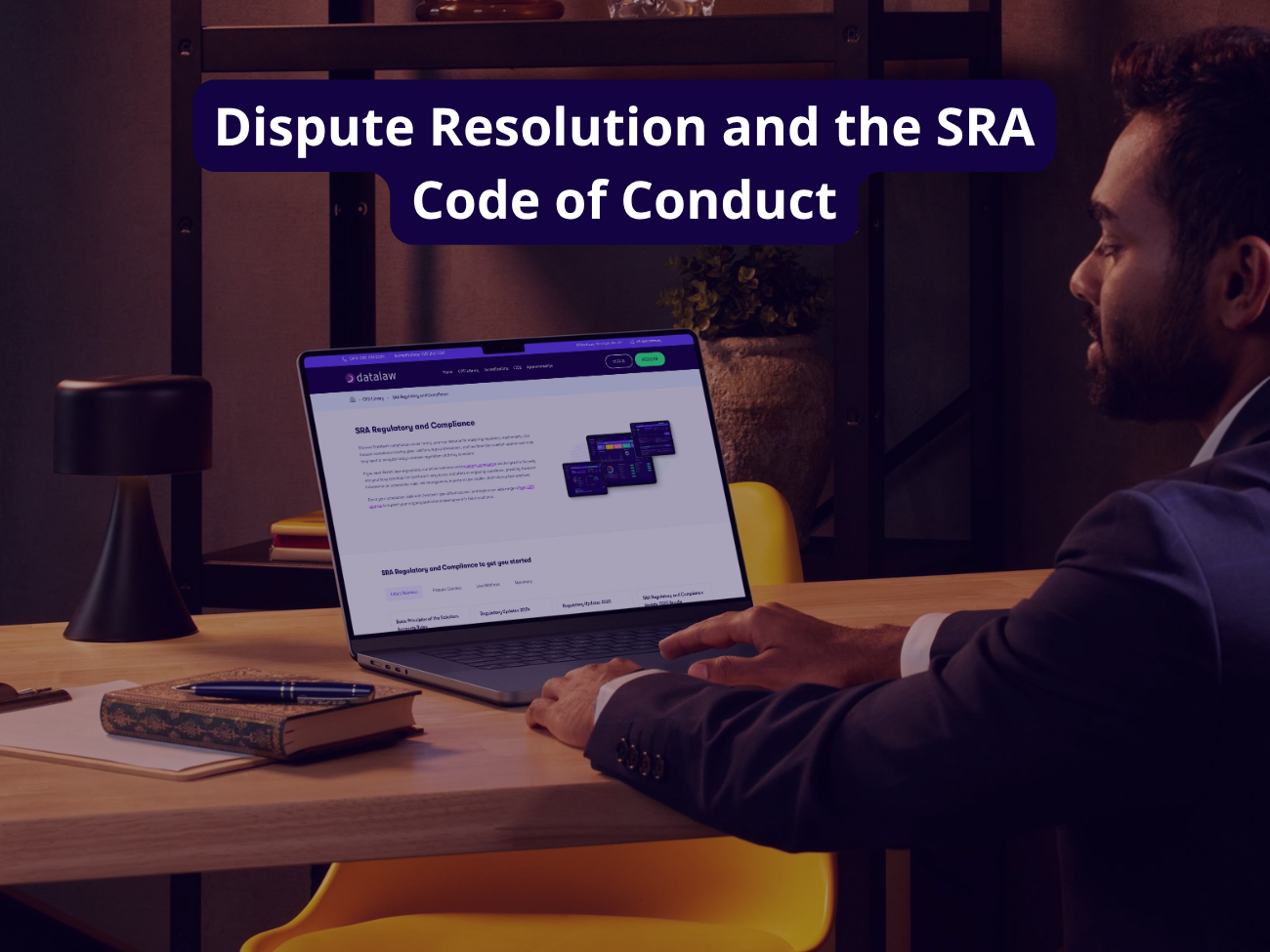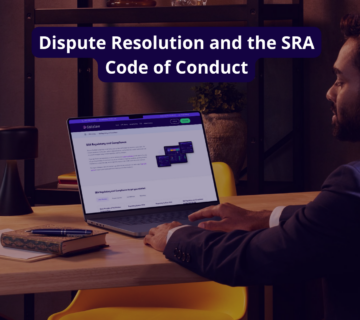In the intricate landscape of legal practice, solicitors are entrusted with upholding ethical standards and professional conduct, especially in dispute resolution scenarios. The Solicitors Regulation Authority (SRA) Code of Conduct delineates a broad spectrum of requirements that solicitors must adhere to while in private practice. In this article, we delve into Rule 2 of the Code of Conduct for Solicitors, encompassing provisions 2.1 to 2.7, and its counterpart in the Code of Conduct for Firms (through provision 7.1). Rule 2 underscores the vocational and professional aspects of compliance when representing clients before courts or tribunals.
Download Our Free “Dispute Resolution and the SRA Code of Conduct” E-Book
Key Provisions and Example Breaches:
Rule 2 encapsulates various facets of ethical conduct during dispute resolution proceedings. From dealing with witnesses and managing evidence to communications with the court, solicitors are obligated to uphold the highest standards of professionalism. Potential breaches under Rule 2 range from inappropriate conduct leading to other breaches, such as the improper handling of client money in litigation, as demonstrated in the case of Bowman v Fels, to ethical considerations like presenting a client’s case fully without misleading by omission, in accordance with Rule 1.4 of the Code of Conduct for Individuals.
Professional Obligations as Officers of the Court:
One of the fundamental tenets of legal practice is the recognition of solicitors as officers of the court. This designation carries significant weight, highlighting solicitors’ duty to uphold the integrity and impartiality of judicial proceedings. As such, solicitors must navigate their professional responsibilities with diligence and integrity, ensuring that their actions align with ethical standards and legal obligations.
SRA’s Approach to Firm Regulation:
The SRA’s approach to firm regulation extends beyond individual solicitors to encompass the collective responsibility of the firm. This includes oversight of staff members involved in court proceedings, emphasising the importance of robust internal controls and supervisory mechanisms. By holding firms accountable for the actions of their staff, the SRA reinforces the imperative of maintaining ethical standards throughout all levels of legal practice.
Datalaw’s Dispute Resolution and the Code of Conduct Course
Elevate your expertise in dispute resolution and ethical conduct with Datalaw’s Dispute Resolution and the Code of Conduct course. Designed for legal professionals seeking to navigate the intricacies of representing clients in court or tribunal settings while upholding the highest ethical standards, this course offers comprehensive insights and practical guidance.
Led by industry experts, this course delves into key provisions of the SRA Code of Conduct, highlighting ethical considerations and professional obligations when dealing with witnesses, managing evidence, and communicating with the court. Whether you’re a seasoned practitioner or new to dispute resolution, this course equips you with the knowledge and skills necessary to navigate complex legal scenarios with confidence and integrity. Enrol now to stay ahead of regulatory changes and drive excellence in legal practice.
Conclusion
Navigating dispute resolution within the framework of the SRA Code of Conduct requires a nuanced understanding of ethical obligations and professional responsibilities. Rule 2 serves as a guiding principle for solicitors, reinforcing the importance of integrity, professionalism, and adherence to regulatory standards. By upholding these principles, solicitors not only fulfil their ethical obligations but also contribute to the integrity and credibility of the legal profession as a whole.
In conclusion, solicitors must approach dispute resolution with a steadfast commitment to ethical conduct and adherence to the SRA Code of Conduct. By upholding the principles outlined in Rule 2, solicitors uphold the integrity of the legal profession and reinforce public trust in the administration of justice.

